Our History
Our History
Brahma Kumaris World Spiritual University
Mount Abu, high in the Aravali Mountains of Rajasthan, provided an ideal location for reflection and contemplation for the original group’s move from Karachi in 1950.
After a few years in a rented building, the community moved to the present site which remains the Prajapita Brahma Kumaris Ishwariya Vishwa Vidyalaya (Brahma Kumaris World Spiritual University).
The Brahma Kumaris spiritual headquarters is known as Madhuban (‘Forest of Honey’).

Brahma Kumaris World Spiritual University
Humble Beginnings
Brahma Kumaris was founded by Dada Lekhraj Kripalani, a retired Indian businessman, in 1937 in Hyderabad, a city now in Pakistan. His spiritual name is Prajapita Brahma and he is lovingly called Brahma Baba. After experiencing a series of visions in 1936, he was inspired to create a school where the principles and practices of a virtuous and meditative life could be taught. The original name was ‘Om Mandali’. It consisted of a handful of men, women and children, many of whom decided to stay together as a community.
In spite of the incredible social upheavals which were going on in pre-Partition India, these people came together, initially in Hyderabad and a year later they moved to Karachi. With time, a simple and clear body of knowledge about the nature of the soul, God and time became revealed. In 1950 (two years after Partition), the group moved to its present location in Mount Abu, India. Until then, these nearly 400 individuals lived as a self-sufficient community, devoting their time to intense spiritual study, meditation and self-transformation.
https://www.brahmakumaris.org/about-us/the-brahma-kumaris-story/brahma-kumaris-world-spiritual-university
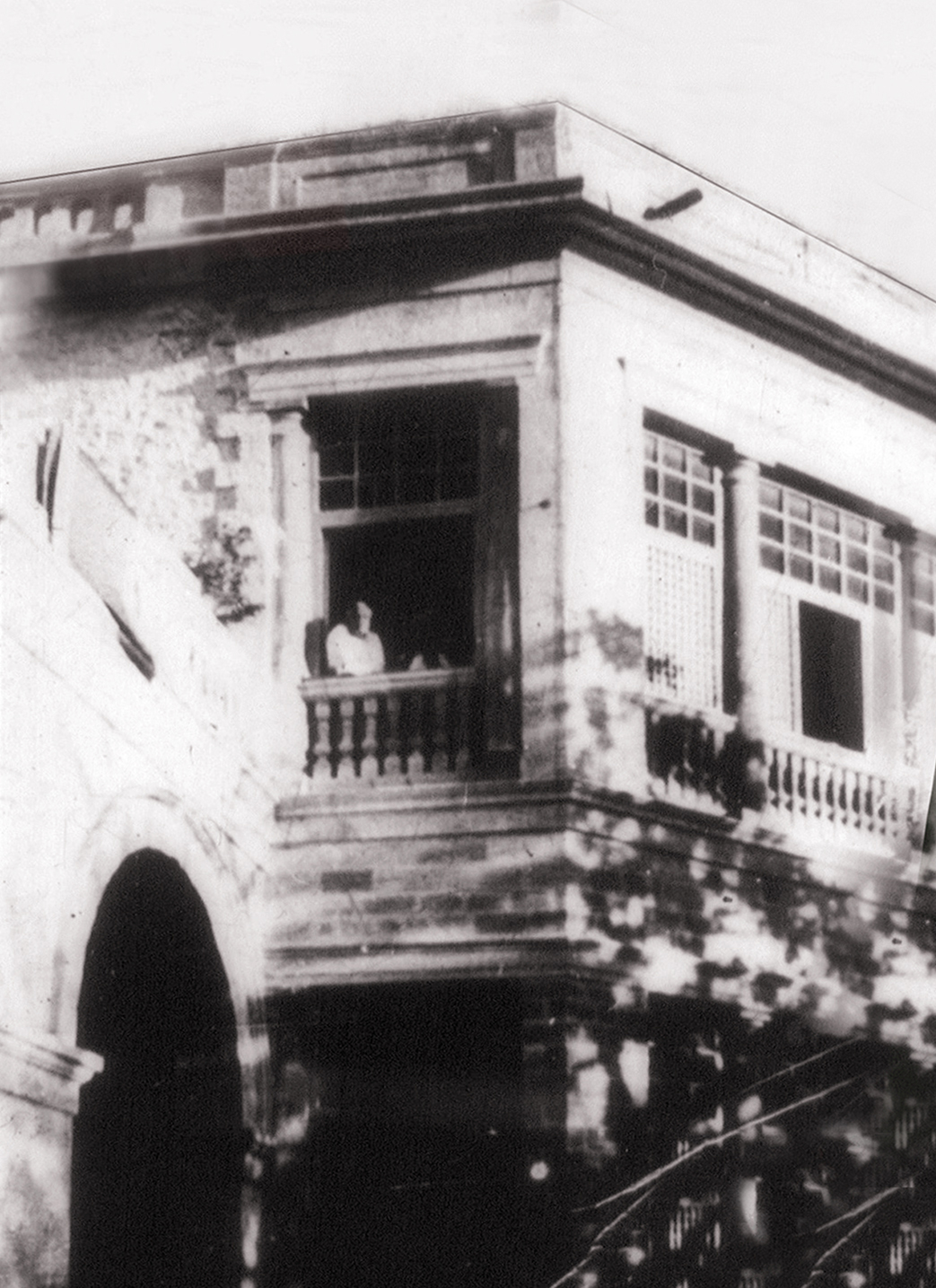

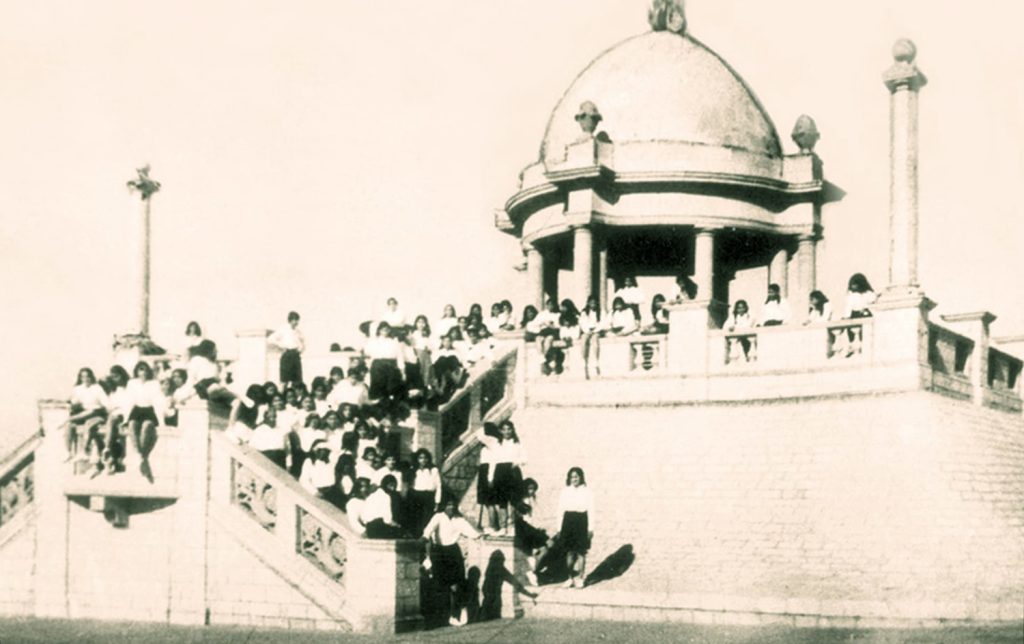
Karachi 1936
Karachi 1940, The “Om Mandali” in Clifton Beach, Karachi
The founder, Brahma Baba
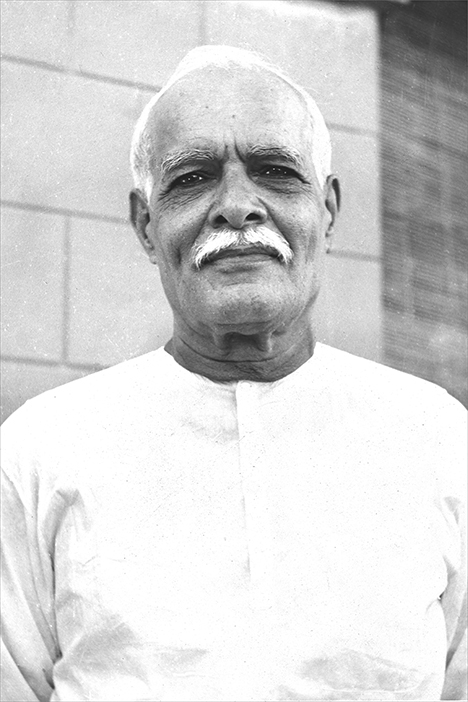
Brahma Baba, born into a humble home as Lekhraj Kripalani in the 1880s, was the son of a village schoolmaster. Lekhraj was brought up within the disciplines of the Hindu tradition. After different jobs, he entered the jewellery business, later earning a considerable fortune as a diamond trader. He was the father of five children and a leader within his local community, known especially for his philanthropy. In 1936, around the time when most people at his age start to plan their retirement, he actually entered into the most active and fascinating phase of his life. After a series of deep spiritual experiences and visions, he felt an extremely strong pull to give up his business and dedicate his time, energy and wealth to laying the foundations of what later would become the Brahma Kumaris World Spiritual University.
Between 1937 and 1938, he formed a Managing Committee of eight young women and surrendered all his property and assets to a Trust administered by them. After guiding the creation of many Brahma Kumaris centres throughout India, he passed on in January 1969. The Tower of Peace on the Madhuban campus is a tribute to the invincible spirit of this ordinary human being who achieved greatness by rising to the challenge of the deeper truths of life.
https://en.wikipedia.org/wiki/Brahma_Kumaris
Brahma Baba’s legacy
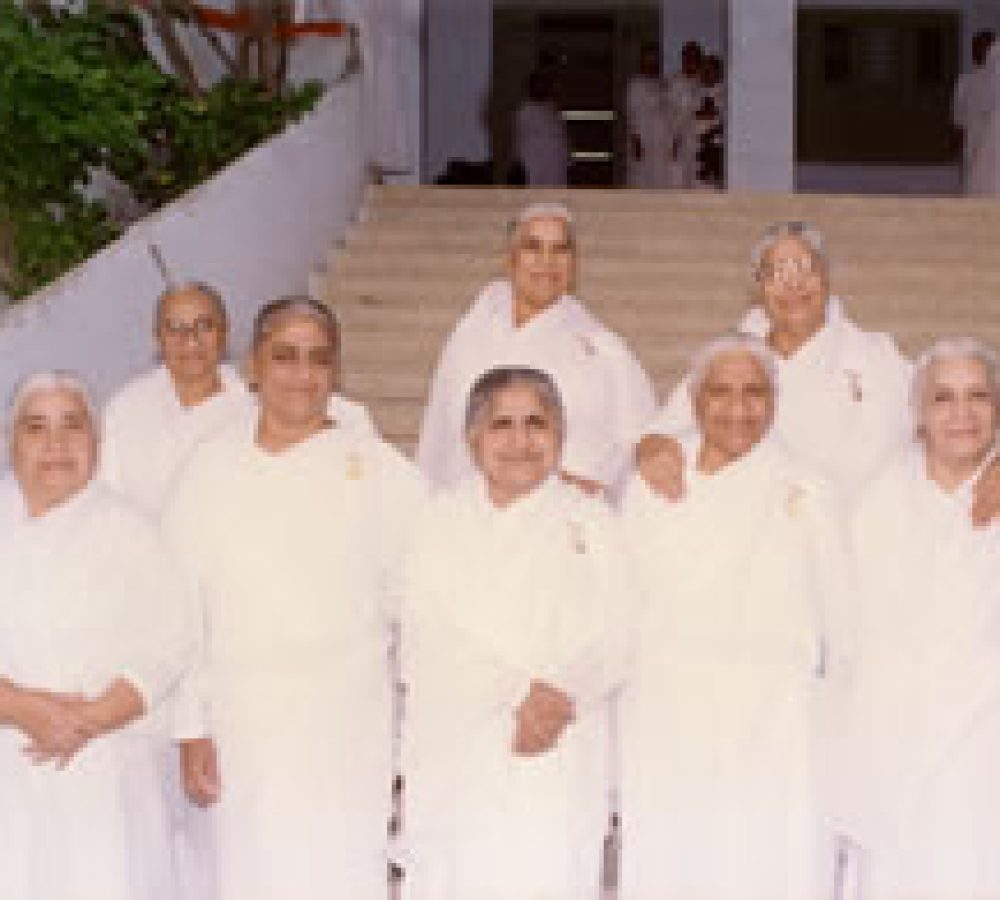
Many years have passed since Brahma Baba’s series of visions in 1936. The lifestyle revolution he began has inspired millions to empower themselves and create hope for the future. The life skills that Brahma Baba taught have stood the test of time. The young women that he put to the forefront, now in their eighties and nineties, have become beacons of love, peace and wisdom.
Dadi Janki
Dadi Janki, a spiritual teacher and leader, worked for more than 80 years to develop her own inner peace and power. The stability she has attained was such that she was able to serve actively until her hundred and fourth year as head of the Brahma Kumaris, an international organisation promoting (individual) spiritual development.
Born in 1916 in the Indian province of Sindh, now part of Pakistan, Dadi (“elder sister” in Sindhi) became a source of wisdom in the art of living.
She recognized that while technological advances in diagnosis and treatment were life-saving and need to be shared globally, many health problems arose from emotional and spiritual suffering and needed to be addressed at a deeper level.
Her view was that simple changes in the way we think and feel would secure a healthy future for individuals, communities and ultimately the whole of humanity.
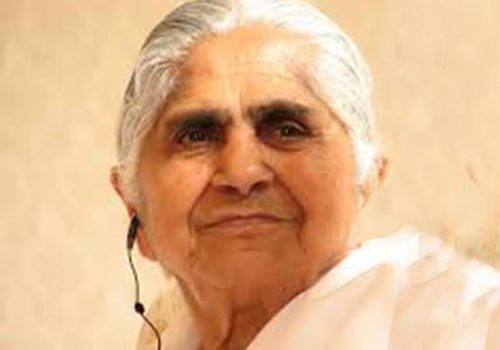
A song for Dadi Janki, “Mother of Love”
Dadi Janki’s insights, into the role of spiritual consciousness in regaining health, had enabled her to support countless others around the world. Just as the focus of her own self-care was on the quality of her thoughts, so she emphasized to all health practitioners the importance of their own state of mind in their interactions with patients, and the role that would play in influencing their patient’s recovery. She maintained that filling one’s mind with positive self-awareness would create an
environment of love and care and this in turn would help others to regain physical strength. Her inspiration allows us to continue our work today and we treasure the wealth of personal lessons in wisdom, courage and hope that she shared
throughout her life and the special encouragement she gave to all of us at JF over the years. https://www.jankifoundation.org/president-dadi-janki/
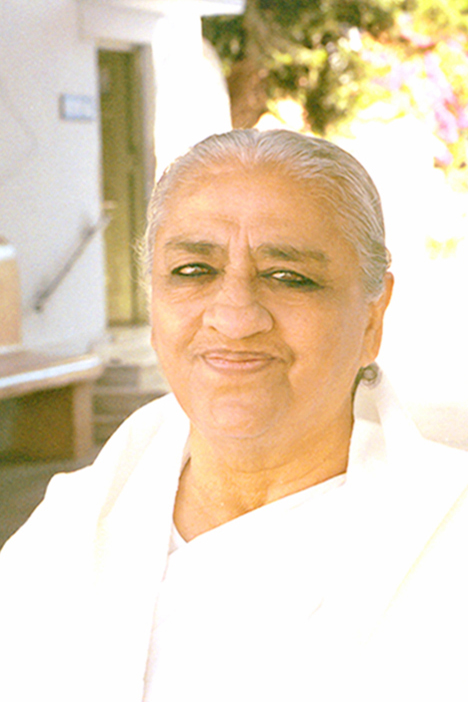
Dadi Hirdaya Mohini
She was the Administrative Head of Brahma Kumaris. Her name means ‘The one who attracts the heart’. It fits the way she is exactly. Popularly known as Gulzar (‘rose garden’), she was one of the original members of the boarding school set up in 1937 by Brahma Baba. Her long-term, concentrated training in spiritual principles and practice has made her a living example of virtues. Simple, silent and profound she also inspires millions throughout the world.
Current Leaders
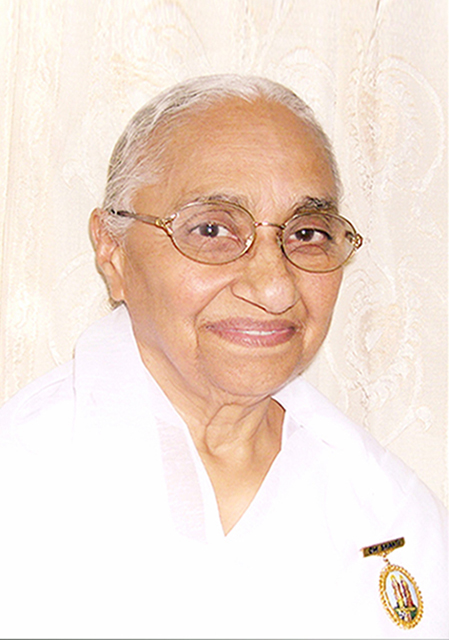
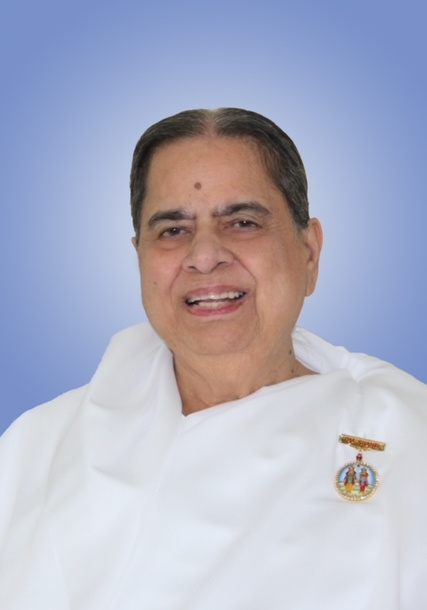

Dadi Ratan Mohini
She is the Administrative Head of Brahma Kumaris and is one of the backbone members residing at the Headquarters. In childhood she created the foundation of her life in the early days of Brahma Kumaris. She lives up to her name ‘most beautiful jewel’ by always appearing light and tension-free. Dedicated and forthright, her focus has been the development and training programmes for teachers throughout India and serves as the spiritual resource to the team of young people responsible for the personal development and growth of youth. Now in her nineties, she remains lively and young at heart.
Brahma Kumari Mohini Panjabi
She is the Additional Administrative Head of Brahma Kumaris. She has been with the BK’s since childhood in Delhi, even while she was a student at the University of Delhi. She served with the founder, Brahma Baba, opening centres in India. In 1974 she began serving abroad, establishing a BK presence in North American, first in the Caribbean (1976) and then in New York (1978). She is president of the Brahma Kumaris World Spiritual Organization of the USA, the regional coordinator of the Brahma Kumaris for the Americas and the Caribbean and is representative of the BK’s to the United Nations. She will share her time between India and the USA.
Brahma Kumari Jayanti Kirpalani
She is an Additional Administrative Head of the Brahma Kumaris. Born in India, she moved with her family to London in 1957 at the age of 8. Her family was instrumental in bringing Raj Yoga to the West. As she returned to India over the years, she met the founder, Brahma Baba on many occasions and at age 19 she made the decision to pursue a life of spiritual study and service with the Brahma Kumaris. Her unique childhood prepared her to bring the wisdom of the East to the West. She is an eloquent speaker and has spoken widely on climate change, applied values and spiritual practice. She is the regional coordinator for the Brahma Kumaris activities in Europe and the Middle East.
